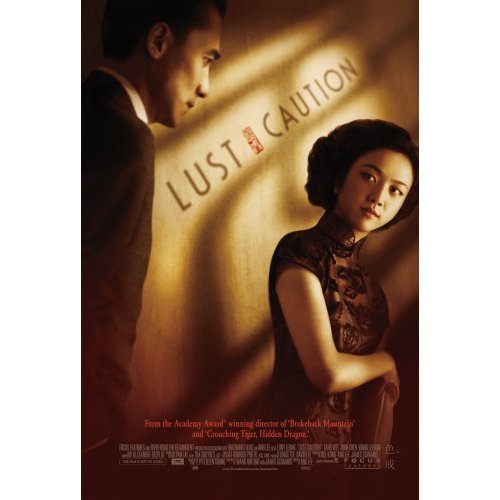Yesterday, I took a day off and went to see this new Ang Lee’s new movie “Lust, Caution” with my wife. There were only two movie theaters in the entire Silicon Valley showing this movie – probably due to the NC-17 rating and the fact that the almost the entire movie are spoken in Chinese Mandarin – some parts were in local dialects of Shanghai and Cantonese. We went to see it at the Prune Yard in Campbell. (It’s been a long time (> 2~3 years) since I visited Prune Yard. Lots of the new shops were opened – very nice.)
I don’t think there are many movies that make you think and wonder about what you would have done in their shoes after seeing the movie. The movie was derived from a short story (28-page, 14 pages from my printer) by Chang, Ai-ling, a famous Chinese writer famous for her “strange” writing – my wife and I were not fond of her fictional stories. The story took place in Shanghai, 1942 during the Japan’s occupation, about a young, naive young college drama student who embarked on an attempt to assassinate at Mr. Yee, the evil traitor of the Chinese people but she ended up falling in love with him …
I had the benefit of seeing the interview of Ang Lee and Tang Wei (the leading actress) the night before on the Chinese TV channel. Ang Lee talked about how he first read the novel and put it aside for several years due to its short length but the story kept a deep impression on him. The story plot was simple and yet deep enough to make him wanted to do something about it. He had to add a few more plots and revised the order slightly to make the story more coherent. He hoped and believe that he had achieve the desire outcome of the the original author. He also wanted to use the movie to remind the current generation that part of Chinese history that has started to fade in people’s memory. It’s not something an American can readily appreciate, as mentioned to Ang Lee by an Indian interviewer a day earlier because America was never occupied by another foreign entity. Tong Wei, who portrays the Mak Tai Tai, is a new rising star and clearly carries the movie, along with Tony Liang. The main female character, as insinuated by Tong Wei, represents heart and soul of the author (Chang Ai-Ling), who did not have her parents while growing up and craved for the love and affection. The author was torn between the rational (cautionary) part of her to rid the country of this traitor and the lustful/passionate side of her who craved for the love and affection from this person, who truly fell in love with her. At the end it was the passionate part that won her over and she lost her life for it.
There were a few (~5) “bed” scenes in the movies. As defended by Ang Lee, there were three development stages of relationship between the evil man and his assassin. The sex scenes were artfully and sensually done and are probably needed to show the “lustful” side of main characters and the sacrifice and the internal struggle of the woman assassin. Would the movie miss any of the sex scenes, probably so. But, I don’t think the movie would have been rated NC-17 in a more liberal countries like those in Europe.
Overall, I love the move. Ang Lee really made a faithful attempt at bringing back the era – the people, the place, the conflicts, and mostly the hearts of the souls of these people living in that era. I think this is the best of Ang Lee. “Crouching Tiger” and “Brokeback Mountain” are for Americans. This one is for the Chinese people. Bravo! Bravo!



